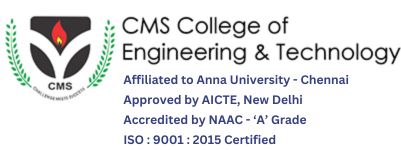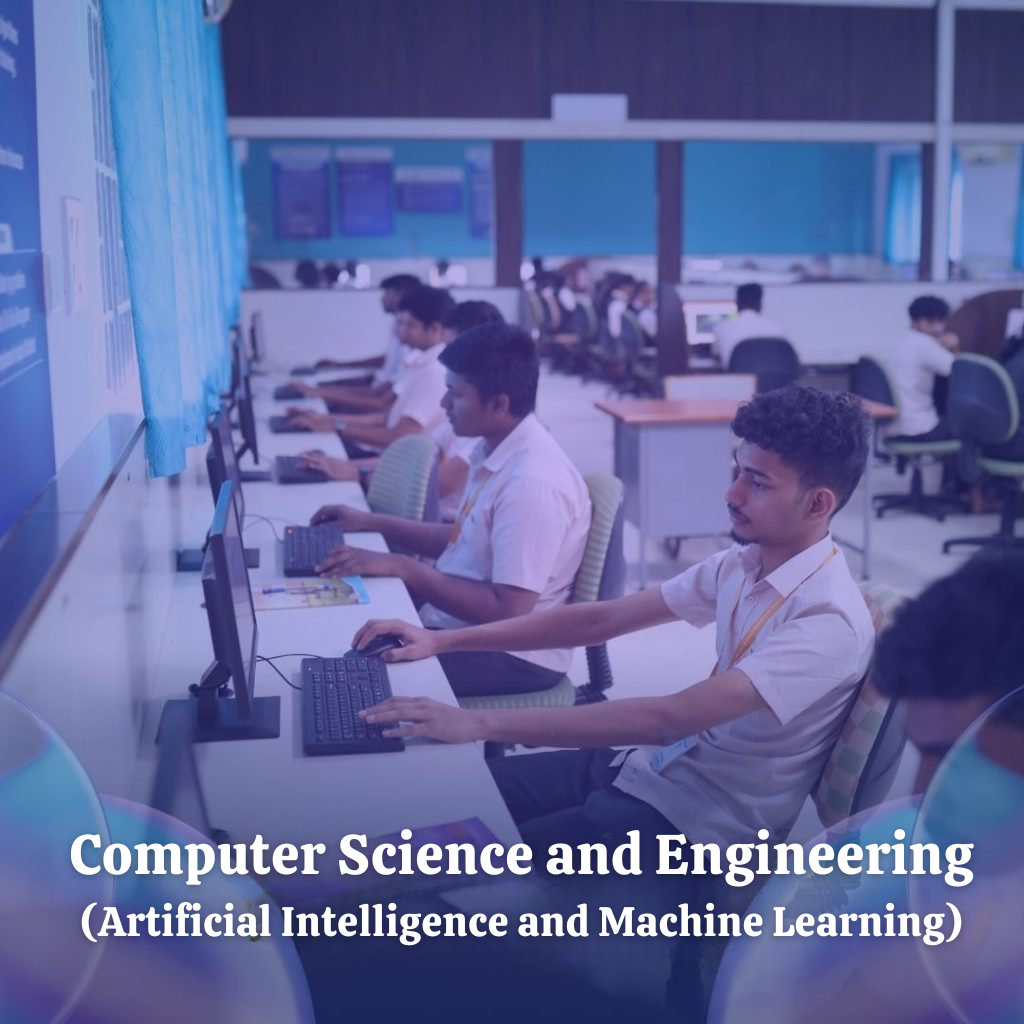Electronics and Communication Department
About the Department
The Department of Electronics and Communication Engineering was started in the year 2009. The department has dedicated and experienced teaching and non-teaching staff.
To facilitate students acquiring theoretical knowledge as well as practical skills needed for meeting the challenges in the field of Electronics and Communication Engineering.
To achieve excellence not only in teaching-learning processes but also in adopting innovative techniques required to improve product quality in Electronics and Telecom Industries.
To Endeavour for constant up gradation of technical expertise for producing competent professionals to cater to the needs of the society and to meet the global challenges The department has separate laboratories with state-of-art equipments. The laboratories such as Optical & Microwave lab, Digital Signal Processing, VLSI lab Electronic circuits lab, Microprocessor & Microcontroller lab, Digital lab, linear integrated circuits lab, Electronic system Design lab, Circuits & devices lab, Communication Systems lab etc… Besides regular classes and lab sessions, the Electronics and Communication Association conducts seminars on emerging technologies regularly thereby ensuring that the students are “Industry Ready”.

Program Educational Objectives (PEOs)
- To provide the students with a strong foundation in the required sciences in order to pursue studies in Electronics and Communication Engineering.
- To gain adequate knowledge to become good professional in electronic and communication engineering associated industries, higher education and research.
- To develop attitude in lifelong learning, applying and adapting new ideas and technologies as their field evolves.
- To prepare students to critically analyze existing literature in an area of specialization and ethically develop innovative and research oriented methodologies to solve the problems identified.
- To inculcate in the students a professional and ethical attitude and an ability to visualize the engineering issues in a broader social context.
Program Outcomes (POs)
Graduate Attribute
- Engineering knowledge: Apply the knowledge of mathematics, science, engineering fundamentals, and an engineering specialization to the solution of complex engineering problems.
- Problem analysis: Identify, formulate, review research literature, and analyze complex engineering problems reaching substantiated conclusions using first principles of mathematics, natural sciences, and engineering sciences.
- Design/development of solutions: Design solutions for complex engineering problems and design system components or processes that meet the specified needs with appropriate consideration for the public health and safety, and the cultural, societal, and environmental considerations.
- Conduct investigations of complex problems: Use research-based knowledge and research methods including design of experiments, analysis and interpretation of data, and synthesis of the information to provide valid conclusions.
- Modern tool usage: Create, select, and apply appropriate techniques, resources, and modern engineering and IT tools including prediction and modeling to complex engineering activities with an understanding of the limitations.
- The engineer and society: Apply reasoning informed by the contextual knowledge to assess societal, health, safety, legal and cultural issues and the consequent responsibilities relevant to the professional engineering practice.
- Environment and sustainability: Understand the impact of the professional engineering solutions in societal and environmental contexts, and demonstrate the knowledge of, and need for sustainable development.
- Ethics: Apply ethical principles and commit to professional ethics and responsibilities and norms of the engineering practice.
- Individual and team work: Function effectively as an individual, and as a member or leader in diverse teams, and in multidisciplinary settings.
- Communication: Communicate effectively on complex engineering activities with the engineering community and with society at large, such as, being able to comprehend and write effective reports and design documentation, make effective presentations, and give and receive clear instructions.
- Project management and finance: Demonstrate knowledge and understanding of the engineering and management principles and apply these to one’s own work, as a member and leader in a team, to manage projects and in multidisciplinary environments.
- 12. Life-long learning: Recognize the need for, and have the preparation and ability to engage in independent and life-long learning in the broadest context of technological change.
Program Specific Outcomes(PSOs)
- Design, develop and analyze electronic systems through application of relevant electronics, mathematics and engineering principles
- Design, develop and analyze communication systems through application of fundamentals from communication principles, signal processing, and RF System Design & Electromagnetics.
- Adapt to emerging electronics and communication technologies and develop innovative solutions for existing and newer problems








